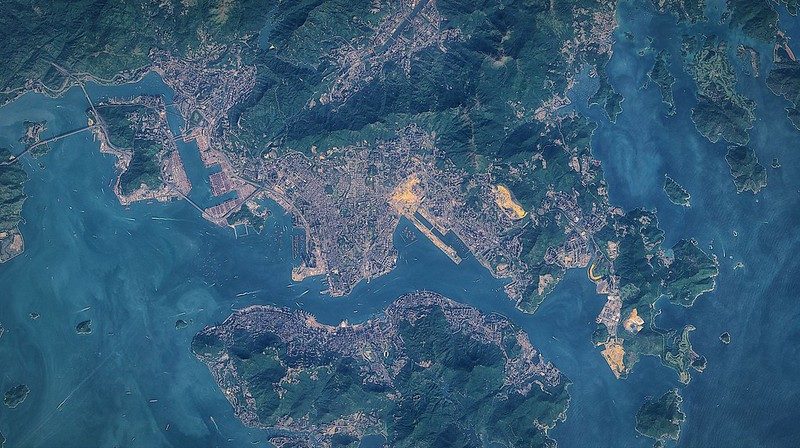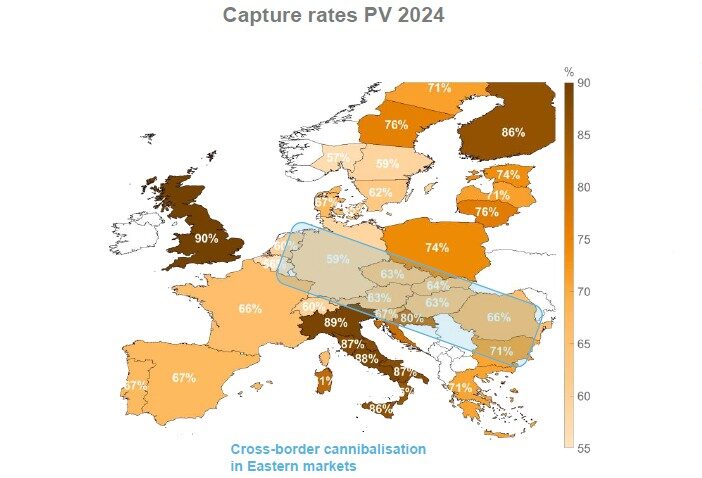With concerns having been raised about the effects of a Covid-19 recession on solar project financing, Chinese polysilicon manufacturer and project developer GCL-Poly revealed another of the unexpected complications raised by the public health crisis, in its latest set of unaudited annual figures.
The hugely indebted company explained in its 2019 figures how the breach of a banking covenant related to RMB557 million (US$78.7 million) of borrowings had triggered cross-defaults of RMB5.17 billion of other credit lines, RMB3.64 billion of which had been due for settlement this year.
GCL began talks with the lenders concerned “on discovery of the breach” but the disruption caused by the coronavirus outbreak has delayed the response from one, unnamed European lender. That means GCL cannot confirm it will not be left on the hook for the immediate settlement of the RMB557 million it has broken the covenant on plus the RMB5.17 billion of cross defaults. Although the manufacturer has voiced its confidence the matter can be resolved, the battering European bank balance sheets are taking because of the public health crisis and related need to lend to struggling businesses could leave GCL in for a nasty shock.
Debt pile
To date, the business has only been required to pay off RMB140 million of the monies concerned, with that payment made in February under a previous agreement stipulating another RMB349 million is settled by June and RMB69 million by August.
The company also noted the debt problem it has related to its GCL New Energy solar project subsidiary, even if the latter made a RMB570 million profit last year while wafer and polysilicon production posted a RMB419 million loss.
The parent company is underwriter for RMB2.77 billion of borrowings by its subsidiary, which has a yawning current-assets-to-liabilities gap of RMB11.3 billion plus a further RMB405 million in project and poverty alleviation fund commitments.
The New Energy business has total borrowings and commitments of RMB38.5 billion, RMB13.6 billion of which is due for settlement this year. Of that total figure, RMB1.6 billion has been dragged from the non-current column into current because of the defaults at the parent company outlined above. The project business has restricted deposits of RMB1.7 billion and RMB1.07 billion in the bank but its parent noted it had raised RMB50 million from Chinese lenders since the end of the year and intends to issue up to RMB3 billion worth of three-year notes to institutional investors before the mandate to do so expires in June. Take-up of those notes, however, also depends on goodwill from the investors targeted.
Solar project sale
All of those travails illustrate how important it is that GCL-Poly and New Energy shareholders tomorrow wave through plans by state-owned China Huaneng to pay RMB851 million for seven Chinese GCL solar projects with a combined generation capacity of 294 MW, at the same time removing a further RMB229 million of obligations from the New Energy debt pile.
GCL-Poly at least appears realistic about the potential fall-out from the Covid-19 crisis. With many of its Chinese solar peers having breezily dismissed talk of any material effect on their operations now manufacturing is returning to normal levels, GCL admitted the outbreak had affected its wafer and polysilicon manufacturing business at a time when operations were already suffering from plunging selling prices last year. As a result, the company said it would attempt to estimate the impact of Covid-19 on its figures in this year’s interim and annual results statements.
The business at least had a lift yesterday, when it announced plans to issue shares amounting to 6.15% of an enlarged GCL-Poly in a bid to raise HK$130 million (US$16.8 million).
As chief executive Zhanjun Zhu stated in the unaudited figures released a month ago: “The path of the great way is a long one, but the destination can surely be reached if one perseveres”. And provided the banks stay onside, he might have added.
Covid-19
This content is protected by copyright and may not be reused. If you want to cooperate with us and would like to reuse some of our content, please contact: editors@pv-magazine.com.




By submitting this form you agree to pv magazine using your data for the purposes of publishing your comment.
Your personal data will only be disclosed or otherwise transmitted to third parties for the purposes of spam filtering or if this is necessary for technical maintenance of the website. Any other transfer to third parties will not take place unless this is justified on the basis of applicable data protection regulations or if pv magazine is legally obliged to do so.
You may revoke this consent at any time with effect for the future, in which case your personal data will be deleted immediately. Otherwise, your data will be deleted if pv magazine has processed your request or the purpose of data storage is fulfilled.
Further information on data privacy can be found in our Data Protection Policy.